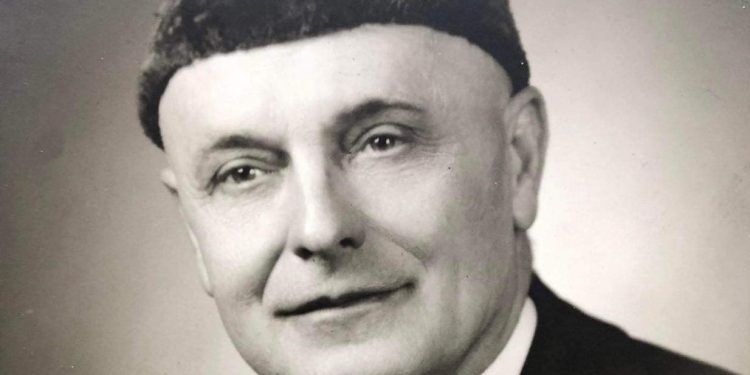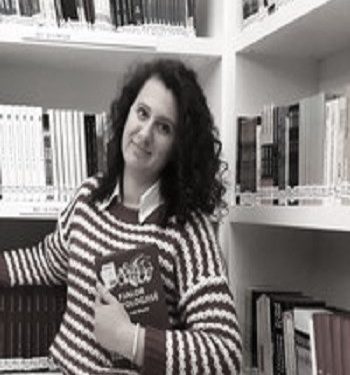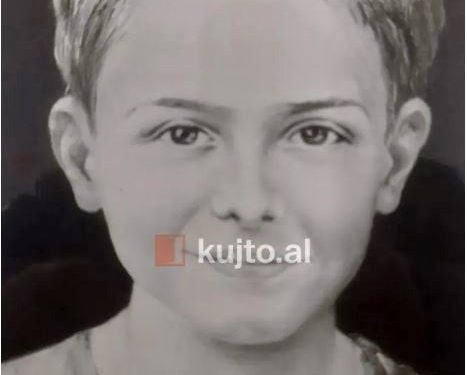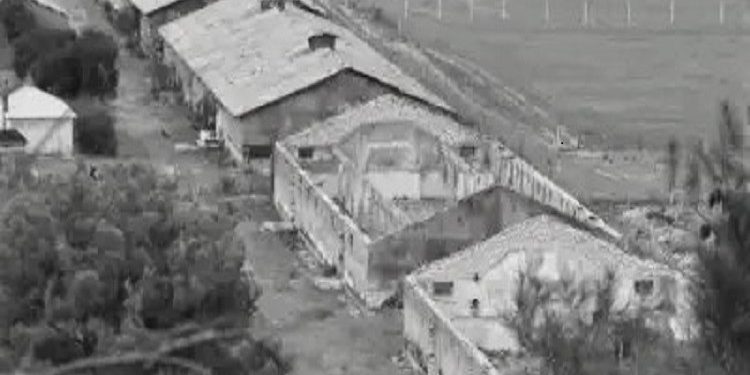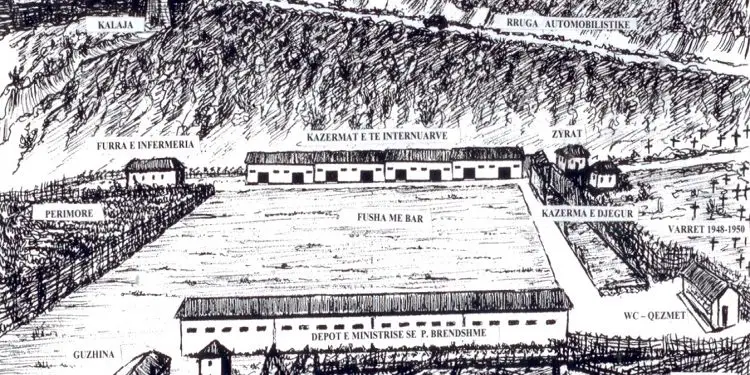By Najada Pendavinji
Memorie.al / Ndue Progni were 7 years old when he passed away in the arms of his mother, Lulë Progni. It was a cold winter night in 1951, in the Tepelena Internment Camp, built on the former Italian army barracks. The family was forcibly sent from Tropoja to Tepelena, after his father Gjoni, a participant in the Northern uprisings against communism, fled the country. Like the Progni family, the revenge of Enver Hoxha’s regime sent hundreds of families, mainly women, children and the elderly, to these barracks surrounded by barbed wire, where, according to testimonies and documents, there were mass deaths due to hunger, poor conditions and disease. Ndue’s cousin, Gjelosh Progni, says that the family’s hopes of finding his remains are fading.
A single portrait of little Ndue was recreated by a painter based on his father’s features, as the family did not even have a photo of him to remember him by! The family had not searched for him until a few months ago, when Gjeloshi decided to file a request to find him, at the Authority for Information on Former State Security Documents, known as the Files Authority. Regarding this and other things, Mr. Gjelosh shares his testimonies with us in this exclusive interview.
Mr. Gjelosh, you are familiar with the project on the progress of the process of finding and identifying missing persons during the communist regime. You have completed the survey and shared with us your experience on finding the remains of 7-year-old Ndue Gjon Progni. Starting from this, would you like to tell me a little about the story of the persecution of the Progni family, which later led to the death of the 7-year-old son, Ndues?
Nduja was the only son of Gjon Progni, who was an academic, having graduated from the military school in Rome in 1932, a high-ranking official of the Kingdom of Zog, performing high-ranking official duties of its Gendarmerie, such as in Lushnje, Tirana, Burrel, Krumë, Tropojë and ended his career as an official, serving as the commander of the Gendarmerie in the Nikaj-Mërtur area.
Gjon, being a political opponent of the communist dictatorship, which was being installed in 1944, automatically became an enemy of the system, because Enver Hoxha refused to have political opponents and sought to eliminate them, to annihilate them, in one form or another and Gjon was one of them.
He was arrested by partisan forces and imprisoned for two years and was about to be shot, but fortunately he escaped and returned to his homeland, took his brother’s son, Marashi and escaped, joining the anti-communist organization in Yugoslavia at that time, led by Nik Sokol. He made great resistance and efforts against communism in Albania.
After they found further resistance in the mountains against communist forces impossible, they immediately left Albania and settled in Brussels, developing political life together with other emigrants in the diaspora, always with their heads turned back towards Albania, towards their homeland, towards their country, to eradicate communism in Albania once and for all. And until they died, their efforts never stopped.
At the moment when Gjoni left together with his brother’s son, who did he leave in Albania?
Gjoni left his son and wife in Albania. The entire Progni family would suffer the consequences of their escape. The family was interned and all their property, movable and immovable, was confiscated, as was the commission of the time, confiscating all the gold napoleons, plots of land, houses and everything else they had and was eventually interned in the Berat camp, then in the Tepelena extermination camp.
What was the reason for the death of the little boy Ndue?
Talking about this event is very painful and you have to pray to God to give you the strength to tell it. Children are like angels, they are completely innocent. You know that in the Tepelena camp, approximately 800 people died, 30 children died within 24 hours.
There was only one “melody”, the “melody” of oil. It was a terrible camp. The greatest pain is that they are all without a grave. They moved the graves three times, and the moves were deliberate, so that they would lose their traces. That’s what happened with little Nduen. His remains may have been carried away by the river, and today he is without a grave.
Nduja died like all the other children in the Tepelena Camp, due to lack of hygiene, lack of food, etc. On his last night, he was in his mother’s arms, suffering. As soon as the camp police took him from her arms, Nduja breathed his last and no longer felt the warmth of his mother’s hands.
The police placed his body in front of the barracks on the woodpile. That night, a heavy rain fell and his mother Lule looked sadly at the body of her wet and lonely son. In the morning, they took little Nduja and his body to the river. Hopes of finding his body have faded greatly and I believe there is no chance of finding them again.
Mr. Gjelosh, what was your request to the authorities responsible for finding the remains of Ndue Progni and have you received a response from the relevant authorities?
The request was made to the Information Authority of the former State Security Documents, to find the remains in the Tepelena camp. I have not received a final response, but we have continuous contacts, who inform us that we are in coordination with the Ministry of Interior and other state bodies, but so far there has been no result.
What do you think is the real problem for not finding the remains and why have you lost hope in finding them?
Given that his death was extraordinary, very unexpected. According to tradition, it is said that the cemetery was taken by the river because at that time they were buried on its banks, but the truth is not known, in any case we are pessimistic about finding the remains of our deceased man, 7-year-old Ndue Progni.
You recently held a reburial ceremony for the remains of Gjon Progni, Marash Progni and the commemoration of the 7-year-old boy Ndues. What significance does this type of ceremony have for you and for historical memory, and does the memorial you held for Ndues show that hope for finding him has faded?
The reburial ceremony and the memorial are a missed honor and a revival of memory. For me, it was not a funeral ceremony, it was not a burial ceremony, and it is a noble ceremony to awaken the memory of this nation and to place these figures who sacrificed everything, in the pantheon of honor, where they belong, their memory and image. Their return to the land, to their birthplace, is a strong symbolism that tries to keep alive the missing memory these 32 years, from the so-called democracy.
It was a special or multiple emotions for our family because, on the one hand, we have the same legacy, the legacy of our ancestors, who 50 years ago Gjoni and Marashi died, the legacy that has weighed on our shoulders and our family and became a reality. And this is an extraordinary emotion and a kind of happiness for our entire family.
Alongside it, the feeling of commemorating the 7-year-old boy Ndue, a great pain because his remains have not been found even after many searches that we have done as a family. The memorial of Ndue was an event that caused many emotions and great pain. Memorie.al




